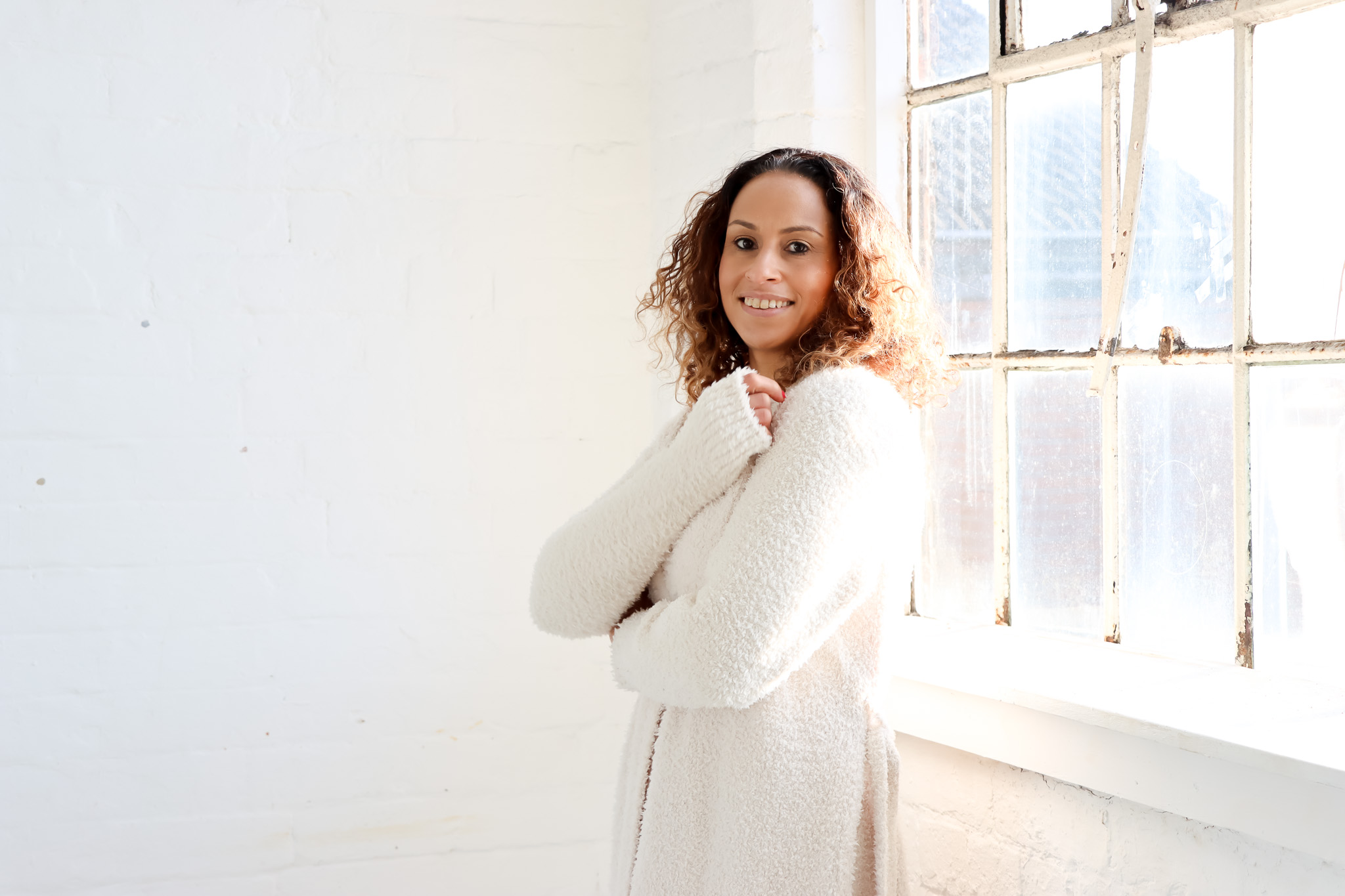How to raise confident kids - we ask a psychotherapist who shares her top 8 tips (#7 is an eye opener)
Plus we break down exactly what a confident child looks like


Parenting advice, hot topics, best buys and family finance tips delivered straight to your inbox.
You are now subscribed
Your newsletter sign-up was successful
Confidence means different things to different people - and as adults, we are keen to see the little humans in our lives develop and build on their self-confidence. Know that this will come as they grow, but for any extra help in the early years try these expert-led and actionable tips to raise your little one to be confident.
While parenting styles can look different, most parents are on the same page with a universally desired outcome - to instil a good level of confidence in their child. As much as we hope our child will be confident, it isn't always easy to achieve. You're not alone if you're concerned about your kid's trust in their ability and judgment, which hinders their self-assurance. Courage has often become to be misconstrued as confidence, and the two are actually quite different qualities. Courage is the ability to act in the face of fear, while confidence is built through experiences that offer security and inherent belief in the knowledge of your own capabilities.
To raise successful children who have a sense of confidence, we spoke to BACP registered psychotherapist, Natasha Page. She told us "Helping your child to foster a positive mindset helps them to have the confidence to understand that if they struggle with something, they can practice and develop their skills. As parents, we can help them to understand that we all have our own unique strengths and qualities, and they can tap into their strengths. But you can also encourage them to practice the things they find difficult as this helps them build resilience - which is key to a being confident child."
Some parents have implemented a 164-year-old Swedish secret to raising happy and resilient kids, to help them build confidence. Combine this with our therapist-approved actionable steps, and you can get your child's confidence to soar. We also share what a confident child looks like, because sometimes it can be nuanced and subtle. You'll also find extra resources to check out, in the ongoing confidence building journey your child is on.
How to raise confident kids: 8 tips
- Encourage independence. Natasha Page told us "Allow children to make choices and take on responsibilities this can help them to build a sense autonomy and confidence in their own abilities. It can be simple things like what clothes they would like to wear or what activities they would like to do including them in the process to build positive self-esteem.
- Positive reinforcement. Natasha added "This is important for children. By acknowledging and praising their efforts and achievements it helps them to foster a positive self-image. Mum-of-two, Zoe, told us this is something that takes a big focus in her parenting. She said "Although loving, my parents were also quite passive and didn't offer much in the way of positive reinforcement. I became really unsure in my own abilities, which affected the subjects I chose at school, and even my career path. With my own kids, I've made sure to offer verbal praise, and take time to reflect on their accomplishments and fears. I hope this builds their confidence in their capabilities and managing their feelings."
- Model self-confidence. Natasha's psychotherapist experience suggests that parents who are self-confidence role models, will have children who inherently sense this. She said "Be a role model for self-confidence. If you are able to demonstrate positive self-esteem to your children, they will be able to sense this. Being confident in your own abilities enables your children to emulate your actions."
- Ensure they feel safe. Dr Martha Deiros Collado is a psychologist specialising in family therapy. In her podcast, she speaks about the importance of children feeling safe before they can feel confident. She said "A part of love is about feeling safe. A lot of this about feeling safe to get things wrong, to mess up, and to be imperfect. Just feeling safe, loved and accepted, is the beginning to build these foundations of self-confidence."
- Pay attention. Dr Martha stressed the need to give close attention to what your children are doing, and situations that might make them retreat or feel vulnerable. Her advice was "Allow children to try, and make mistakes. Getting things wrong is part of the process, and we have to let our children fail and feel disappointed. This is an opportunity to grow self-confidence."
"Confident children are more able to bounce back quickly from failures or setbacks and use them as opportunities for learning and growth"
Natasha Page, Psychotherapist
- Use the right words. This might seem counterintuitive, but if your child is the one frightened to join the group, or worried they're bad at something, don't tell them they are great and everything is fine. Psychologist, Dr Becky, said "Confidence isn't feeling good about yourself. Confidence is self-trust. Confidence is your ability to have a feeling, and feel like it's ok to be you." Therefore, letting them share their feelings and validating them, is more effective that enforcing children can do something that actually feels uncomfortable for them. Mum-of-one, Tilly, told us "Every time my daughter told me she was bad at something, I didn't even pause before telling her she was amazing at it, and it was all in her head. Looking into building confidence in kids was when I realised I'd been doing it wrong. I still struggle with not immediately jumping in to reassure her when she identifies a weakness, but I've definitely noticed the difference trying to understand her feelings has made, instead of trying to make them disappear."
- Build their self-trust. Following on from not trying to reinforce your child is good at something when they might not be, is to build their own trust in how they feel. Confidence comes with sitting with the feeling they aren't the best at something, and having a sense of peace with that. Dr Becky suggests parents ask their child to share more of their feelings when they realise they struggle with an activity, or share their own experiences of not being good at something. She said "When we show our kid that we tolerate the experience they're having, that actually makes them feel more confident."
- Reframe your idea of confidence. Your child retreating from a situation shows a lack of confidence, right? Well, sometimes, but not always. Dr Becky believes this can actually indicate a very confident child. She said "When you think about your kid being 16, and being in a situation where there's a lot of kids doing something they don't want to do, would you tell that 16-year-old 'join in!'? Or would you say to your 16-year-old 'wow. You knew something didn't feel right to you and you didn't do it. That's amazing, how confident of you.'" Don't think your child can't sense something is wrong or they don't feel safe, because they can. Sit with them and their feelings on this, and know they might've acted out of confidence.
6 signs your child is confident
- They express themselves with ease. Natasha spoke to us about exactly how this can look in your confident child, saying "Confident children are often able to express themselves with ease. They are comfortable with sharing their thoughts and opinions, and able to initiate conversations and interactions with others.
- Relaxed body language. Uncrossed arms, an upright head and open facial expressions, all identify that your child is relaxed. Natasha added "A confident child displays open and relaxed body language, they are able to maintain eye contact and feel comfortable talking to others."
- Express their needs assertively. Confident kids will be assertive, but not aggressive. They understand what their needs are, and have the ability to effectively communicate what they want.
- They bounce back. Natasha told us "Confident children are more able to bounce back quickly from failures or setbacks and use them as opportunities for learning and growth." Mum-of-two, Gia, has experience of this. She added "I have a child who is a born perfectionist. She wanted to keep going at everything until it was her idea of perfect. She takes part in activities she excels at, and keeps going with those she doesn't. Where she used to be devastated about not being great at some things, we now offer praise for everything she's great at, and her confidence has grown since the realisation has dawned that failures are inevitable, and everyone has skills that lay in different places."
- They display positivity. Natasha told us "Confident children generally feel positive towards themselves and are able to acknowledge their strengths but also the areas for growth."
- Their confidence looks different. Confidence looks different in adults to how it manifests in children, which is something to consider when judging your child's levels of self-assuredness. Adults have time and experience to develop confidence and understanding of their capabilities. They're likely to demonstrate their assurance through body language children have not yet developed, such as moving slowly, not fidgeting, and mirroring the body language of others. A child might be confident, but not yet developed these abilities, therefore it's important to remember the subtle signs of confidence that look different in young people.
Additional support
- Dr Martha Deiros Collado has a website outlining her paid courses for parents.
- Dr Martha has a free to listen to podcast, with over 50 episodes of helpful material for parents.
- You can also find her on Instagram, where she shares free content and parenting insights with her followers.
- Dr Becky also has a number of paid courses for parents on her website.
- She also shares plenty of actionable tips on Instagram, where she has 2.4 million followers.
- Catherine Hallissey is another parenting and child psychologist to check out, who also has some paid courses but plenty of free resources to have a look at.

Natasha Page is an experienced counsellor, psychotherapist, business coach, writer, and founder of My Little Therapy Box. She is an accredited member of the British Association for Counselling and Psychotherapy (BACP) and is passionate about mental health and supporting others.
For tips on raising resilient kids, we've got you covered. Talking about challenging subjects with children can be hard, and we've shared therapist-back tips relating to talking to kids about cancer, and how to broach the subject of divorce.
Parenting advice, hot topics, best buys and family finance tips delivered straight to your inbox.

Lucy is a mum-of-two, multi-award nominated writer and blogger with six years’ of experience writing about parenting, family life, and TV. Lucy has contributed content to PopSugar and moms.com. In the last three years, she has transformed her passion for streaming countless hours of television into specialising in entertainment writing. There is now nothing she loves more than watching the best shows on television and sharing why you - and your kids - should watch them.